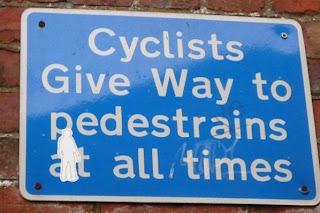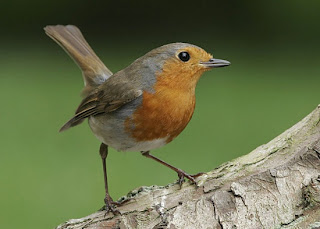295
In this blogposting…*The World: A Truckshunter Geography
*The Message of the Bells
*AGM XXVIII
The world, you’ll find, is your oyster…
THE WORLD: A TRUCKSHUNTER GEOGRAPHY
Let’s begin this new venture with a deafeningly loud round of applause for the Republic of South Sudan, which - as of 11 July 2011 - is the world’s newest country.
Here are some facts about the Republic of South Sudan.
It has a population of about 6.7m who live in an area of 619,745 sq km.
And that’s about it, really. Two dry statistics which tell us only the very basic basics about this newly independent territory and which remind me of the kind of geography we were taught at school: area, population, capital city, main industries, exports and imports and er…. Bob's yer uncle.
Not only do textbook facts like these tend to be on the soporific side of boring, but they also tell us next to nothing that we’d really like to know about the country in question. They certainly don’t quench our traditional truckshunter sense of curiosity and wonder.
Back, for example, to the Republic of South Sudan. What are the words of its National Anthem? What is its favourite comedian? What’s at Number One in the South Sudanese Top Twenty? What language(s) do they speak there and how do you count from one to ten in it/them?
Does it have a teenage pregnancy problem? What’s its highest mountain called? What kind of films do they watch and who’s their favourite film-star? Was anyone famous born there - even before it became the Republic of South Sudan?
Do its citizens like it? What’s the weather like, generally speaking? Should we go there for a holiday? What do they eat and drink there?
As far as I’m concerned, it’s stuff like that makes Geography such an interesting subject.
Which is why I’ve decided to launch our very own ‘alternative geography’ - a skewed or sideways look at the 193 member states of the United Nations. Our Truckshunter Geography will follow the wayward trail laid down by Paul and me on the Blue Bus programme and maintained on The Nightshift - namely, there’s always more than one way of looking at a subject AND you can make anything sound interesting if you try hard enough.
I’ve already started my ‘research’, in an informal kind of way, and have made some thought-provoking, if fairly trivial, discoveries. There are no farms at all in Singapore, Vatican City, Monaco or Nauru. Fully 50% of the population of Uganda is under 14. The people of Papua New Guinea speak over 800 languages between them. Turkey has lost more wars than any other country on Earth.
And once you start, it's well-nigh impossible to stop.
Hungarians refuse to eat oats. The English drink 23 times more tea than the Italians. Taiwan and Luxembourg are the only countries in the world where there are more mobile phones than people. And amongst Australia’s annual sporting events there’s a Cockroach World Championship, a Nude Olympics, a National Pig Race and a Beer-Can Regatta...
Now that’s what I call real geography.
We’ll be starting our survey of The World As We See It in a couple of weeks’ time with the country that comes first alphabetically on the UN’s list: Afghanistan.
You may think that it would be virtually impossible to find anything truckshuntery to say about that unhappy country - but you’d be surprised. There’s a lot more to Afghanistan than perennial conflict, big shaggy dogs and opium poppies.
Feel free to join in. Google can provide you with a list of UN sovereign states. After that, it’s up to you to dig up some ‘Well I never!’ facts about them as we go along.
Like….the first country to give women the vote was New Zealand (in 1893)...Tonga once issued a postage stamp in the shape of a banana…I could go on. And I intend to.
And you never know; in a few months we could have a best-selling 'airport' book on our hands, packed with the irresistible lure of the trivial and the unexpected - grist to out truckshunter mill.
Together, we can show how weird and peculiarly fascinating our world is.
Or we can try.
THE MESSAGE OF THE BELLS
This list of mottoes inscribed on English church bells - collected by a man called John Potter Briscoe for an 1883 book called Curiosities of the Belfry - has been sent to me by yet another anonymous emailer. I rather like it…
*Fear God and obeai the Qwene (Artlingworth, Northamptonshire, 1589)
*Arise and go about your business (St. Ives, Cornwall)
*I ring at six to let men know
When too and from thair worke to goe (Coventry, West Midlands, 1675)
*A trusty friend is harde to finde (Passenham, Northamptonshire, 1585)
*Bee not wise in your owne conceits (Yardley Hastings, Northamptonshire, 1723)
*Labour overcometh all things (Glentham, Lincolnshire, 1687)
*Rejoice with them that do rejoice and weep with them that weep (Orlingbury,
Northamptonshire, 1843)
*When you die
Aloud I cry (Owmby, Lincolnshire, 1687)
*I call the quick to church and dead to grave (Calstock, Cornwall, 1773)
*When you hear this mournful sound
Prepare yourselves for underground (Hough-on-the-Hill, Lincolnshire, 1683)
*Mankind, like us, too oft are found
Possessed of nought but empty sound! (Bakewell, Derbyshire, 1798)
AGM XXVIII
Our next AGM will take place at 1100 on Wednesday 24 August at the Tanfield Railway, on the road between Sunniside and Stanley.
It’s the only place to be seen that day.
CONTACT ME
Post comments on this blog or email me: truckshunters@googlemail.com































